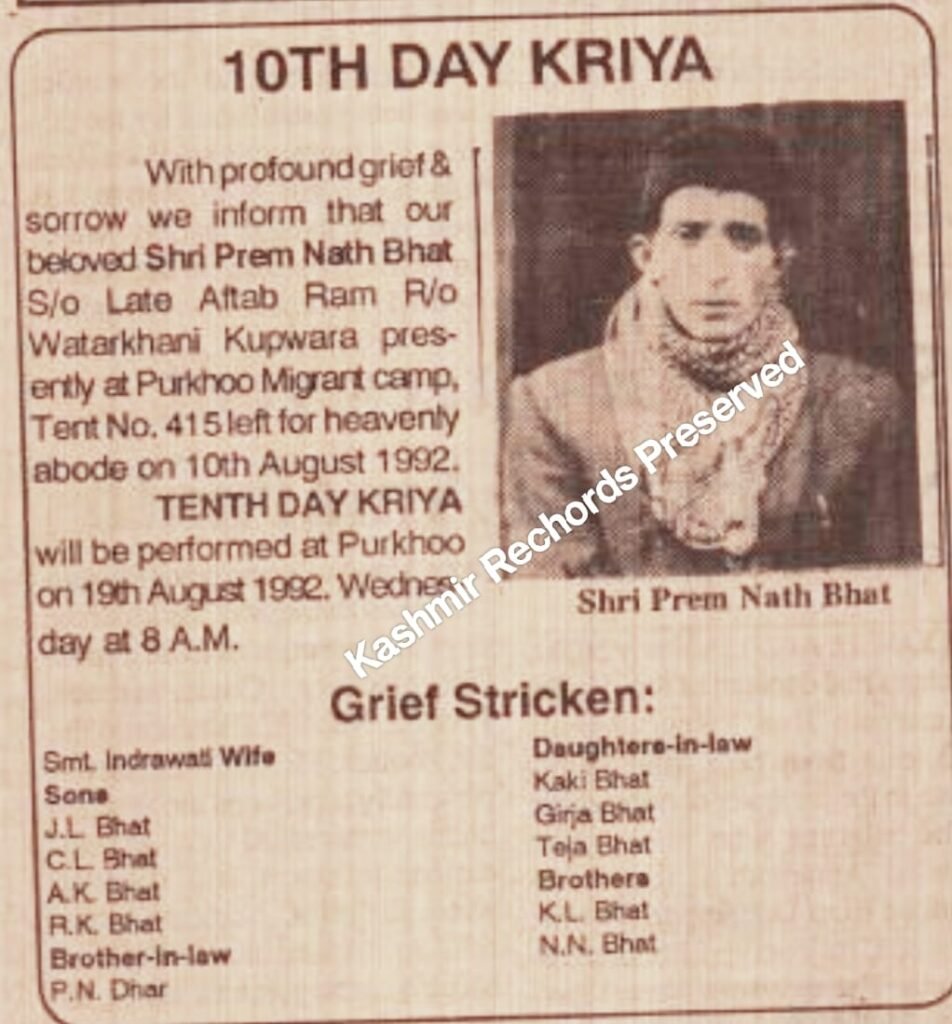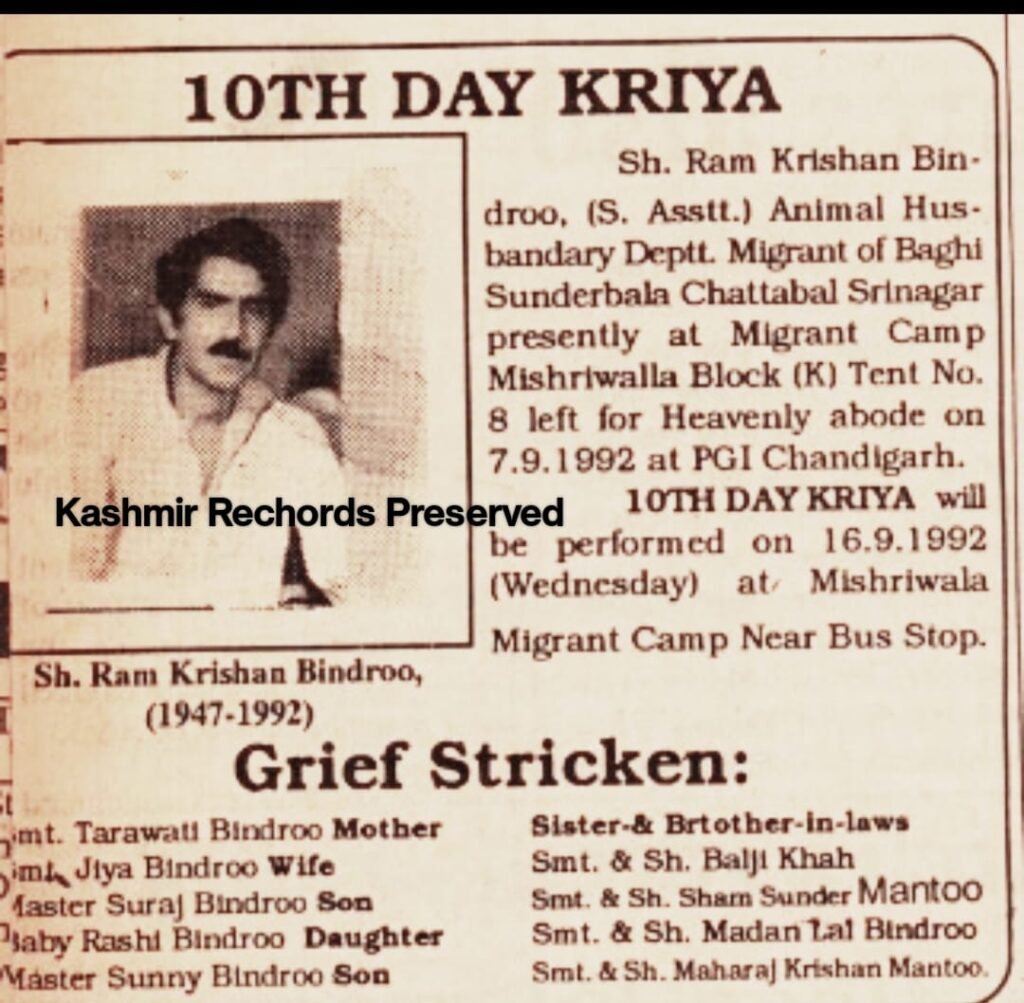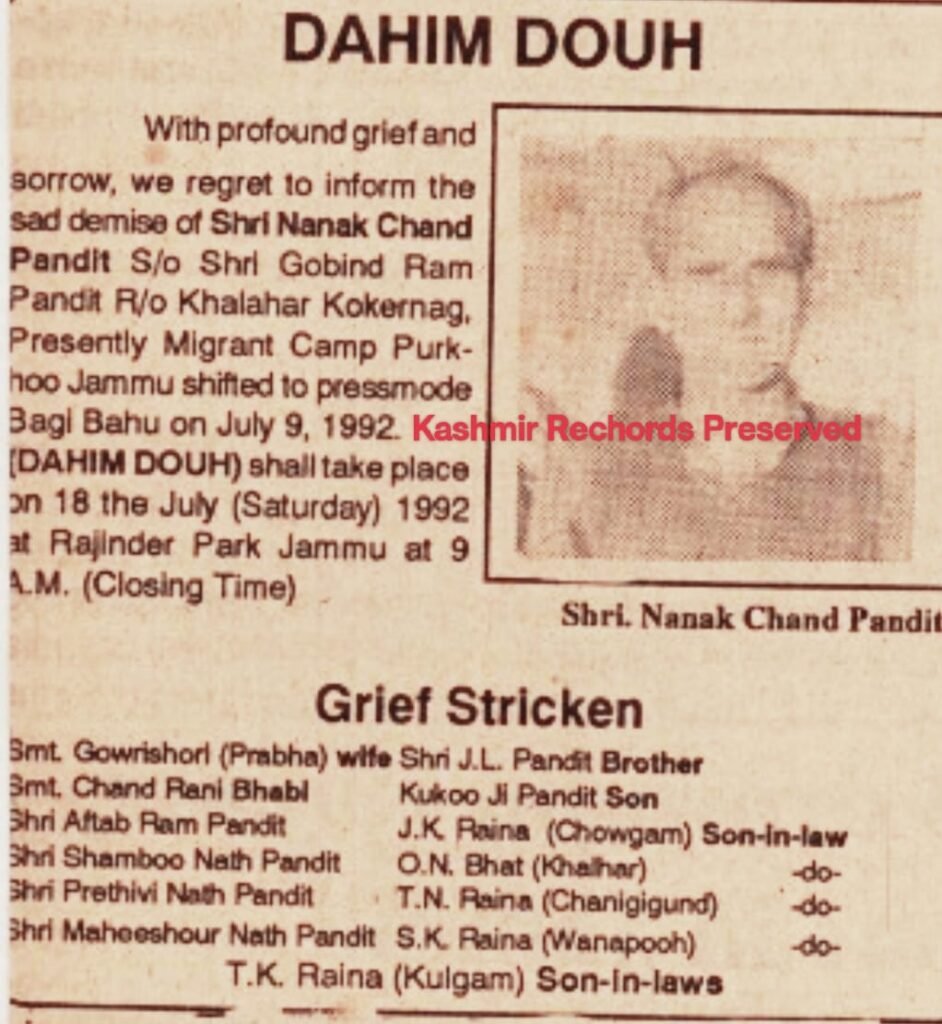From Palatial Homes to Tent Numbers: The Unwritten Obituaries of Exile
(Kashmir Rechords Exclusive)
By the time Prem Nath Bhat, a prosperous landowner from Watarkhani in Kashmir’s Kupwara district, breathed his last, his identity had been reduced to something unthinkable—a tent number!
Once surrounded by acres of fertile orchards, multi-storeyed family homes, and the comforting soil of his ancestors, Prem Nath had never imagined that his final address would read: “Tent No. 415, Purkhoo Migrant Camp, Jammu.”
It wasn’t just him.
Ram Krishan Bindroo, an employee with the Animal Husbandry Department from Chattabal, Srinagar, met a similar fate. After being driven out of his home during the early 1990s exodus of Kashmiri Pandits, Bindroo spent his final days in “Tent No. 08, Mishriwala Migrant Camp”, battling the indignities of camp life until death took him.
And then there was Nanak Chand Pandit from Khalahar, Kokernag. A man who, within just two years of displacement, passed away inside a fragile tent at Purkhoo Camp—another life sealed within canvas walls, without even the dignity of four brick walls to die within.
The Number That Became a Name
For these families, the tragedy wasn’t just about losing their homeland—it was about losing their very identity!
In Jammu, families who once lived across sprawling estates found themselves crammed inside thin, sun-beaten tents. The summer heat was unforgiving. The winter cold pierced through the tarpaulin like a knife. Walls meant to provide shelter could barely stand without wooden pegs. There was no electricity. No proper sanitation. Just a number painted outside—the only marker of existence.
When death came knocking, even the obituaries carried this cruel reminder.
Local Jammu newspapers began announcing deaths like this:
“Prem Nath Bhat, Tent No. 415, Purkhoo Camp…”
“Ram Krishan Bindroo, Tent No. 08, Mishriwala Camp…”


As if their entire life, their heritage, their profession, their family name, had been erased and replaced with a camp number. A cold, emotionless number.
And when the time came to mourn, it wasn’t inside ancestral homes, but within rows of similar tents. Sons, daughters, elderly parents and grieving relatives gathered inside that numbered space for the next 15 days, performing last rites with trembling hands and broken spirits.

More Than Just Statistics
These aren’t isolated stories.
Hundreds of displaced Kashmiri Pandits faced the same heartbreaking end. Some fell to heat strokes, others to snake bites, many more to sheer exhaustion, hunger and hopelessness. Infants and elders alike withered in the dust, their lives slowly erased by neglect.
The tent numbers were like silent prison tags—marking lives lived in exile, waiting for dignity that never came.
The greatest irony? This was a community known for peace, education, and contribution to society. Their only crime was belonging to a land caught in a conflict they never started.
Decades have passed, but the shadow of those tent numbers still lingers. The younger generations still remember them. Some now speak from permanent houses, others still from temporary shelters—but the trauma of being reduced to a number remains.
Because Every Tent Number Has a Story
These are not just statistics. Each tent number hides a life once full of hope, dignity, and dreams.
And these stories must continue to be told and retold—until the collective conscience of the nation awakens. Until the day comes when no community is forced to write their identity and their grief… under a tent number.